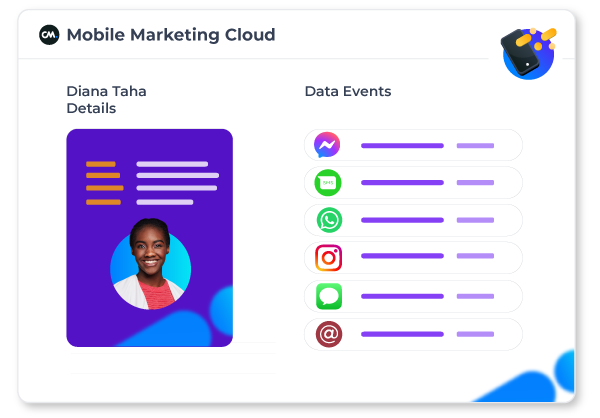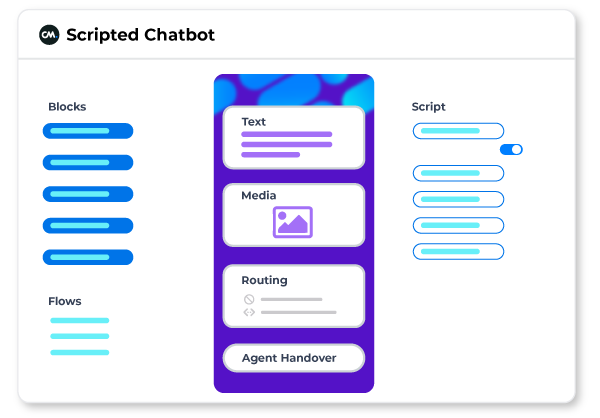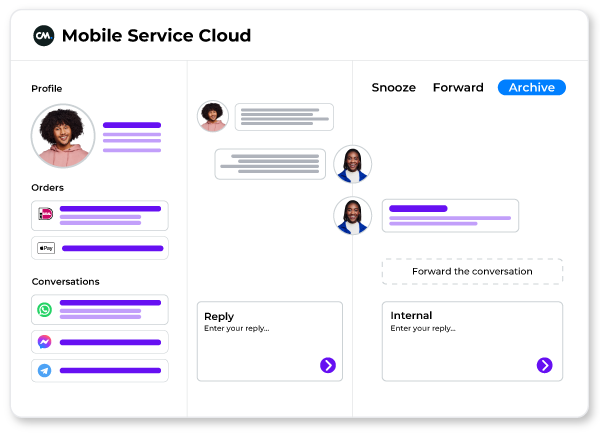- What is Artificial Intelligence for business?
- How can AI work for your business?
- Embracing innovation
- The path to profitability
- Overcoming challenges
- Looking to the future
In the heart of Africa lies a country with a rich tapestry of cultures, landscapes, and untapped potential. While often celebrated for its natural beauty and diverse population, South Africa is making waves in the realm of technology, and particularly in the field of Artificial Intelligence (AI). As the world increasingly embraces AI solutions, South Africa is not lagging behind but rather emerging as a tactful and vibrant player in this technological revolution.
What is Artificial Intelligence for business?
Utilising Artificial Intelligence (AI) in business involves strategically integrating AI technologies to elevate different facets of business activities. This encompasses automating repetitive tasks, refining customer service experiences, analysing data to facilitate well-informed decision-making, and fostering innovation in products and services. AI application spans across diverse domains like machine learning, natural language processing, robotics, and computer vision, offering a wide spectrum of possibilities to optimise business operations and drive growth.

How can AI work for your business?
For instance, AI-powered chatbots are used by businesses to provide customer support, answer inquiries, and automate routine tasks, thereby improving efficiency and reducing costs. In the retail sector, AI algorithms analyse customer profiles that contain behaviour and purchase history to personalise product recommendations, driving sales and enhancing customer satisfaction. Additionally, AI-driven predictive analytics enable businesses to forecast demand, optimise inventory management, and make data-driven decisions for strategic growth. AI can empower businesses to leverage data-driven insights and automation that drives innovation, improve operational efficiency, and gain a competitive edge in today's dynamic marketplace.

Embracing innovation
In recent years, South Africa has witnessed a significant uptake of AI technologies across various sectors. According to a study by the South African Department of Trade, the AI market in South Africa is projected to reach 6.9 billion rand by 2025, driven by increased investment and adoption across industries.
The integration of AI into everyday life has been notably faster through things like ChatGPT, while businesses are being more careful about rushing into the implementation of AI. Many businesses are still in the process of understanding how AI can be effectively implemented to drive value and profitability, as well as what areas of it should specifically be invested in. Despite this initial cautious approach, there is growing interest among industry leaders that AI will become increasingly profitable within the next two years - early investment in the understanding and tactful adoption of AI in business is key.
The path to profitability
Businesses in South Africa are beginning to recognise the potential of AI to streamline operations, enhance productivity, and drive innovation. According to a survey conducted by Deloitte, over 60% of South African businesses believe that AI will have a significant impact on their industry within the next two years. This growing awareness is prompting companies to invest in AI-related initiatives and explore opportunities for implementation.
One area where AI is expected to yield significant returns is in customer service and engagement. By leveraging AI-powered chatbots and virtual assistants, businesses can provide personalised and efficient customer support, leading to higher satisfaction rates and increased loyalty. Additionally, AI-driven analytics tools are enabling businesses to gain deeper insights into customer behaviour and preferences, allowing for more targeted marketing and product development strategies.

Overcoming challenges
While the potential for profitability is promising, businesses in South Africa still face several challenges when it comes to fully embracing AI. These include concerns about data privacy and security, limited access to skilled AI talent like prompt engineers (who optimise any inputs that go through AI systems) and the high costs associated with implementing these solutions. Additionally, there is a need for greater awareness and education among businesses about the benefits and capabilities of AI, before a full fusion can take place.
To address these challenges, industry stakeholders are working together to develop solutions and support the broader adoption of AI. Government initiatives aimed at promoting digital skills development and fostering innovation are helping to bridge the skills gap and create a more conducive environment for AI investment. Furthermore, collaborations between academia and industry are driving research and development efforts to address specific challenges and unlock new opportunities for AI integration.

CM.com's Customer Data Platform leverages AI and machine learning algorithms to analyse large volumes of customer data, including interactions, preferences, and behaviours. By extracting actionable insights from this data, businesses can gain a deeper understanding of their customers. Identify trends, personalise marketing campaigns and automate customer experiences; manage incoming messages via an omni-channel inbox and free up time for your agents with an AI chatbot to answer any FAQs.
Looking to the future
As South Africa continues its journey towards AI adaption, the outlook for success is bright. With the right strategies in place and continued investment in AI research and development, businesses are poised to reap the benefits of AI-driven innovation. By embracing AI as a transformative tool for growth and a competitive edge, South Africa can position itself as a leader in the global AI landscape and unlock new opportunities for economic prosperity.
While the adoption of AI in the South African market may still be getting going, there is a growing optimism among businesses that success is on the horizon. By overcoming challenges and embracing AI as a driver of innovation and growth, South Africa is poised to realise the full potential of this transformative technology in the years to come.
